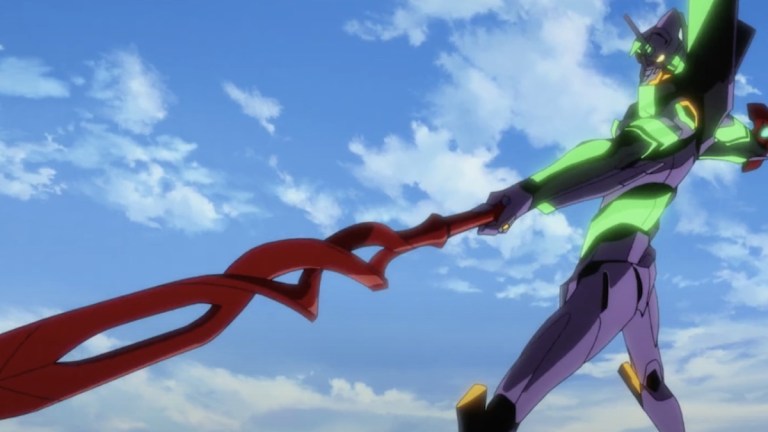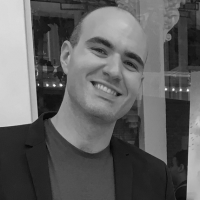How Evangelion 3.0 + 1.01 Thrice Upon a Time Perfectly Ends The Franchise
The Evangelion story stops tumbling down and finally lets its characters move on.

This article contains spoilers for Evangelion 3.0 + 1.01: Thrice Upon a Time.
Evangelion 3.0 + 1.01 Thrice Upon a Time had a lot to wrap up. Not just the story of the Rebuild of Evangelion films, a story that had been left on a cliffhanger since 2012, but the Evangelion franchise as a whole, which began in 1995. This is the swansong, for Evangelion, the final story for the foreseeable future in creator Hideaki Anno’s ideal version of the series. (Anno stated in an interview with The New York Times that he might return to the franchise at some point but that it won’t be any time soon.) This puts an immense weight of responsibility on Thrice Upon a Time, especially since the first three Rebuild films had massive problems.
While gorgeous to look at and listen to with its powerful score, the plot of the Rebuild films began to crack once 2.0 came around. They became incomprehensible, even to the most die-hard of fans. 3.0 only made this worse with its plot losing all focus and for all the interesting ideas they didn’t seem to be leading anywhere. It was a mess.
One of the most intriguing of those ideas, that this wasn’t just a reboot of Evangelion but somehow a continuation through the process of the universe being on some kind of loop, meant that however Thrice Upon a Time wrapped up the story? It would impact the series and original set of films as well. Everything was riding on this film and it had the deck stacked against it.
And yet miraculously they pulled it off. It certainly doesn’t make up for the flaws of the earlier Rebuild films but it manages to wrap up its confusing plot and finally bring the Evangelion series to a rest in a way that even the original series couldn’t. How?
It lets the characters move on. Much of Evangelion, the series and films, was defined by characters battling with themselves. Battling depression, sense of self, their pasts, and much more. This is why the series gained an unfair reputation of “that show where everyone cries a lot.” It was a depressing watch at times but what made it all worth it was to see how the characters did or didn’t deal with their struggles.
For Shinji he sank into his own depression, struggling with wanting to live at all. Eventually, as we saw in the end to the original series, End of Evangelion, he chose to live. That’s all nice and inspirational… But what comes after? Making a choice is different from actually living with that choice. What happens after you make a choice? This is where Thrice Upon a Time does its best work.
At the start of the film Shinji is depressed, the world in ruins thanks in part to his actions. He’s practically mute, refusing to eat, and doing nothing but bagging on himself. His friends try to get him to open up but they’re unsuccessful. Rei manages to get past his self loathing, explaining she’s friends with him because she likes him as a friend with no deeper reasoning attached to it. This is what manages to get Shinji to turn around. He begins to make choices to live, to eat, to interact with others, and to fight back against the Angels and other forces bearing down on the remnants of his old world.
This is what begins the true end of Evangelion, with the emotional arcs of the characters coming to a climax before moving on. The best example of this is Shinji and his father. In both versions, the series and the Rebuild films, Gendo is cold and distant with Shinji. They hardly speak to each other yet the two’s relationship forms a critical backbone to each other and explains why they act the way they do.
In End of Evangelion Gendo “simply” (it’s Evangelion, nothing is truly simple) has his head bitten off by a version of wife Yui. It was a solid ending for Gendo but it didn’t feel like a proper wrap-up to everything that had gone on between him and Shinji. Thrice Upon a Time on the other hand gives us a full on fight between the two, one that explodes into their minds and even features the main set pieces of the series crumbling around them as actual movie sets. This fight lets them get all of their big and complicated feelings out about each other… before it slows down. Gendo doesn’t get the “easy” route out of getting his head bitten off. Instead Gendo gives up on his failed ideas, accepts the loss, and walks away. He doesn’t keep pulling Shinji back in, he doesn’t keep trying to bring back his dead wife. He makes a choice, to make peace with himself, and he lives with it.
This only happens because of Shinji’s choice to live. Shinji decides to make this confrontation happen. He begins the movie paralyzed with depression but gets up and does the work so he can finally move past everything that’s been haunting him. The movie, thankfully, rewards him for this. In the previous films Shinji thought he’d made the world even worse, killed so many people, but Misato reveals that no, everyone would have died anyway if Shinji hadn’t done anything. His actions made the world better.
The way this plays out in the film also brings thematic weight to the suggestion that the Evangelion timeline, universe, or whatever, was on a loop. It’s like life. You can make big proclamations about the changes you want to make but sometimes life makes it so you can’t. Your traumas come back to haunt you, you fall off the wagon, worse things happen. Easier said than done. The looping of the universe is Shinji and everyone else needing to learn that they have to make tough choices. They have to work hard to make a lasting change or they’ll end up back where they started. Here, the changes finally happen.
The loop ends because Shinji and the others move past their crap. They face their mistakes head on, admit their flaws, and try to be better. They work on it, partly with over the top mecha action like launching battleships as missiles, and are rewarded. The end lets damn near everyone, in their own way, be at peace. Even better? It isn’t just about romance. Shinji didn’t need someone to fix him just as Asuka didn’t need to end up in a relationship.
What makes this the perfect end to the Evangelion franchise is that the characters finally do the hard work that comes after you make the choice to live your life better and they’re happier because of it. They’re at peace. They let go, just like, in his own way, Anno is telling the audience to let go of the characters and world. It’s done, it’s over, the loop is broken. Make your peace and move on. Don’t cling to the past. You’ll be better for it.
